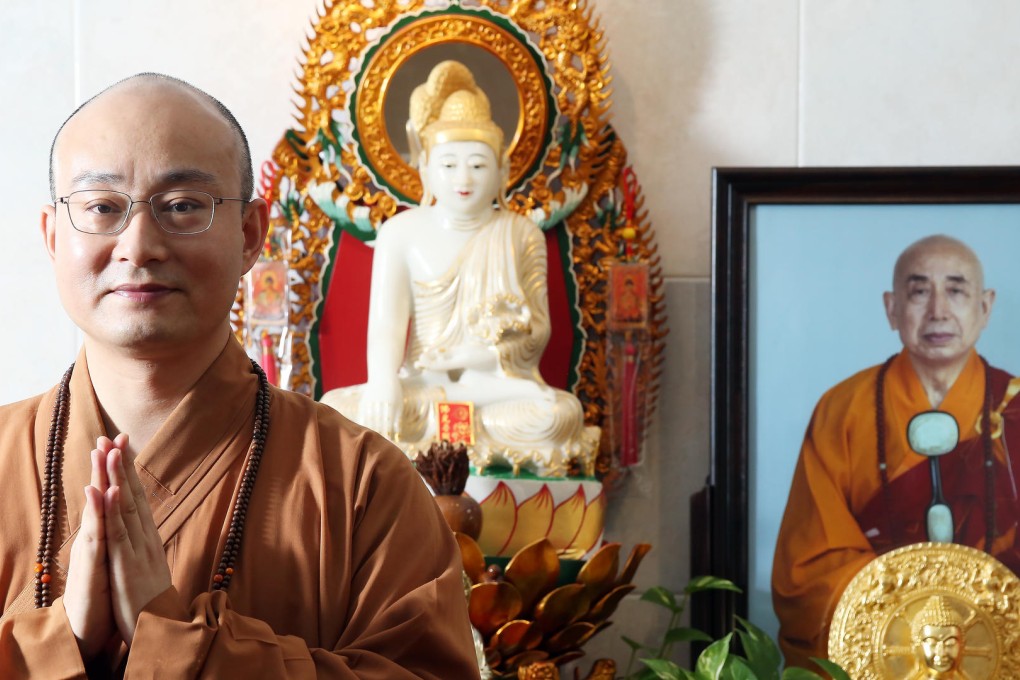Hong Kong people should embrace mainland China, Buddhist Association leader says
In our fourth report on key religious leaders, Buddhist Association executive vice-president says policymakers can learn from his religion

Hongkongers should take reference from Buddhist teachings and embrace integration with the mainland, a Zhejiang-born Buddhist leader has said.
Sik Hong Ming, 44, has been living in Hong Kong since 2002 and is now an executive vice-president of the 70-year-old Buddhist Association, widely regarded as the most influential Buddhist body in the city.
READ MORE: Divided Hong Kong needs traditional Taoist values, says religion's leader in city
Asked what the biggest problem facing Hong Kong was, Hong Ming said: "Hong Kong was quite special in the way that it was ruled by a foreign country … Some people received quite a Westernised education, they lacked an understanding of Chinese culture, and had a different way of thinking and handling things … This creates some conflicts and the phenomenon of disharmony."
In recent years, Hong Kong has seen a rise in anti-mainland sentiment with some residents objecting to the influx of mainland tourists and traders buying goods for resale over the border.
On the political level, pro-democracy activists staged the 79-day Occupy civil disobedience movement last year in protest against a political reform framework set by Beijing they said would install "fake democracy" in Hong Kong. The reform package was voted down in the Legislative Council in June.
Hong Ming said that in the face of the clash of cultures, mainland and Hong Kong residents should remember the Buddhist concept of y , which roughly translates as "perfection and fusion", or the need to have an adaptable world view.
